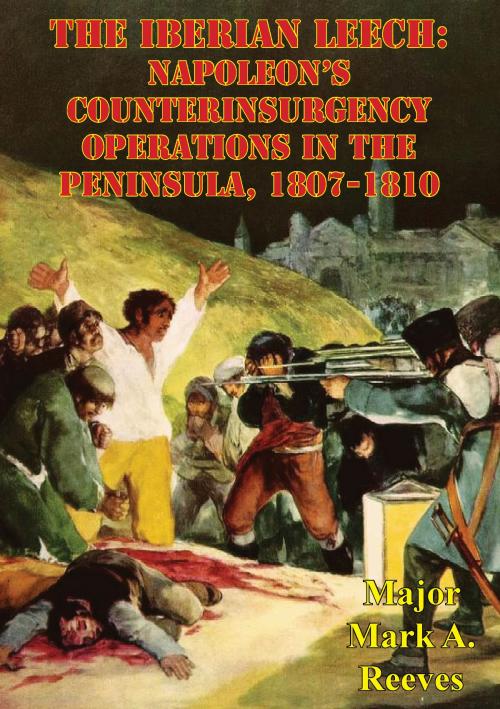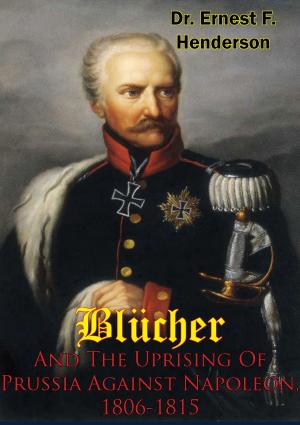The Iberian Leech: Napoleon’s Counterinsurgency Operations In The Peninsula, 1807-1810
Nonfiction, History, Spain & Portugal, France, Military| Author: | Major Mark A. Reeves | ISBN: | 9781782899990 |
| Publisher: | Wagram Press | Publication: | November 6, 2015 |
| Imprint: | Wagram Press | Language: | English |
| Author: | Major Mark A. Reeves |
| ISBN: | 9781782899990 |
| Publisher: | Wagram Press |
| Publication: | November 6, 2015 |
| Imprint: | Wagram Press |
| Language: | English |
By 1807, Napoleon’s victories over his European adversaries were legendary. His Grand Army had defeated the greatest European armies of the period. Each army, in succession, from the Hapsburg Empire to Russia, had been soundly beaten and had not been able to come to grips with how to deal with his lightning style of warfare. Yet, over a six-year period from 1807 to 1813, in the backwater Iberian Peninsula, Napoleon lost both his prestige and more troops than he lost in the infamous wintry campaign in Russia. How did an army of bandits, priests, and commoners along with a small expeditionary force achieve victory over the most powerful armies on the continent? The answer lies in that Napoleon did not only fight a band of insurgents and a small British led coalition army, but he also suffered from a combination of poor morale, weak leadership and a refusal to fully recognize the enemy situation. His overextended lines of communications covered an area that was bleak and poor in resources and he could no longer rely on foraging to feed and supply his troops, many of them suffering from starvation.
The Iberian Campaign cost Napoleon over 250,000 troops and drained the French of manpower and resources that could have been used elsewhere. The campaign bankrupt Napoleon’s image of invincibility and sapped his armies’ leadership and experience. Therefore, Napoleon would have to rely on more conscripts and an ever-increasing number of foreign troops to fill his depleted ranks. Napoleon’s generals were entangled in a politico-military quagmire for which they were never prepared and for which they received little guidance. The Peninsular Campaign sucked the lifeblood of Napoleon’s armies and they were never able to fully recover from it.
By 1807, Napoleon’s victories over his European adversaries were legendary. His Grand Army had defeated the greatest European armies of the period. Each army, in succession, from the Hapsburg Empire to Russia, had been soundly beaten and had not been able to come to grips with how to deal with his lightning style of warfare. Yet, over a six-year period from 1807 to 1813, in the backwater Iberian Peninsula, Napoleon lost both his prestige and more troops than he lost in the infamous wintry campaign in Russia. How did an army of bandits, priests, and commoners along with a small expeditionary force achieve victory over the most powerful armies on the continent? The answer lies in that Napoleon did not only fight a band of insurgents and a small British led coalition army, but he also suffered from a combination of poor morale, weak leadership and a refusal to fully recognize the enemy situation. His overextended lines of communications covered an area that was bleak and poor in resources and he could no longer rely on foraging to feed and supply his troops, many of them suffering from starvation.
The Iberian Campaign cost Napoleon over 250,000 troops and drained the French of manpower and resources that could have been used elsewhere. The campaign bankrupt Napoleon’s image of invincibility and sapped his armies’ leadership and experience. Therefore, Napoleon would have to rely on more conscripts and an ever-increasing number of foreign troops to fill his depleted ranks. Napoleon’s generals were entangled in a politico-military quagmire for which they were never prepared and for which they received little guidance. The Peninsular Campaign sucked the lifeblood of Napoleon’s armies and they were never able to fully recover from it.


![Cover of the book The Life of Nelson - Vol. I [Illustrated Edition] by Major Mark A. Reeves](https://www.kuoky.com/images/2011/february/300x300/9781908692412-igWY_300x.jpg)












